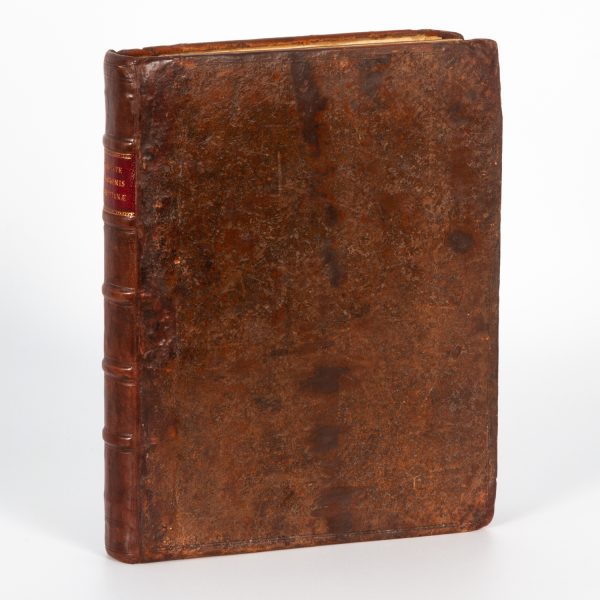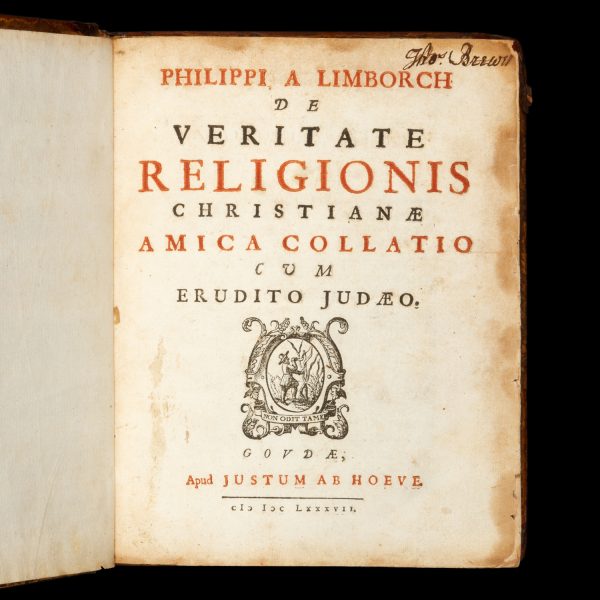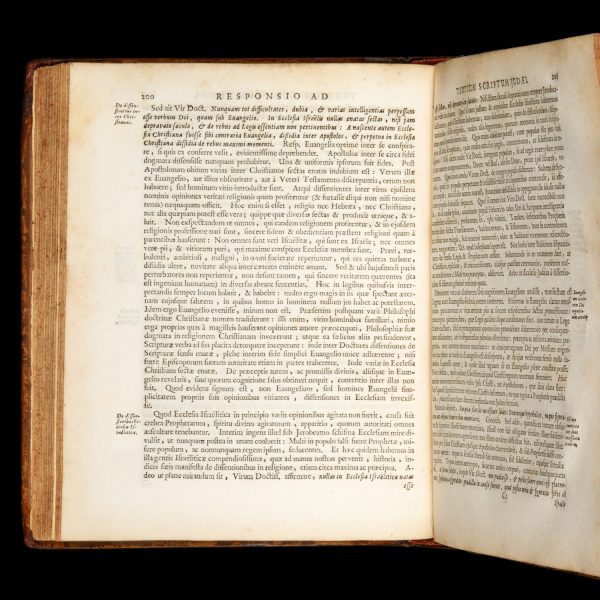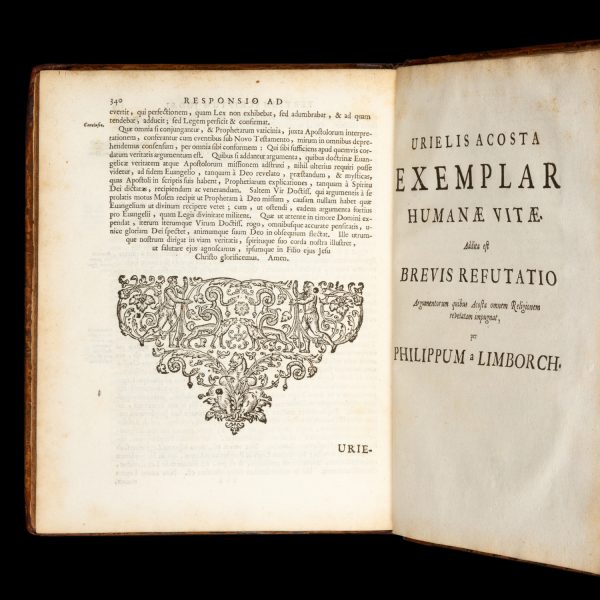# 41473
LIMBORCH, Philippus van (1633-1712)
De veritate religionis christianae amica collatio cum erudito Judaeo.
$2,400.00 AUD
[= A friendly conversation with a Jew concerning the truth of the Christian religion]. Goudae, Justum ab Hoeve [Gouda : Justus van der Hoeve]. First edition. Small quarto (235 x 190 mm), contemporary full calf (new spine and title-piece, sympathetic to the style of the period); front pastedown with armorial bookplate of William Markham of Becca Lodge, Yorkshire, title-leaf in red and black with early ownership signature of Thos. Brown (light staining and browning, fore-edge chipped); pp. [16], 364, [14, index]; separate title-pages for the second and third parts, Exemplar humanae vitae (An example of a human life) and Brevis refutatio argumentorum quibus Acosta omnem religionem revelatam impugnat (A brief refutation of the arguments in which Acosta attacks all revealed religion); side notes, woodcut tailpieces; occasional browning, but very clean throughout, a good copy with wide margins.
Philipp van Limborch (1633-1712) was a Dutch Remonstrant theologian. He based his De veritate religionis christianae – now regarded as key theological work of the eighteenth century – on an identically titled one by Hugo Grotius. It comprises a debate in the form of an exchange of letters between Limborch and the Jewish scholar Isaac Orobio de Castro (1617-1687), who is the “erudite Jew” referred to in the work’s title. Castro, having fled the Inquisition in Spain, made attacks against Christianity in France and then in Holland. Limborch publishes and responds to three letters authored by Castro which deny the truth of the Christian religion. The second part of this volume, the Exemplar Humanae Vitae, is the autobiography of Uriel da Costa (c.1585-1640), a Portuguese Jew excommunicated from the Sephardi Jewish community of Hamburg in 1618 over his criticism of rabbinic Judaism. The third part is a short refutation by Limborch of da Costa’s attacks against revealed religions.










